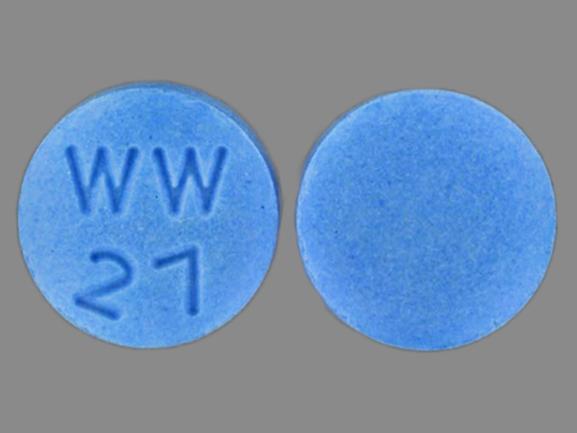Dicyclomine Side Effects
Medically reviewed by Drugs.com. Last updated on Jun 23, 2025.
Applies to dicyclomine: oral capsules and tablets, oral solution, parenteral injection.
Side effects include:
Most adverse effects are manifestations of pharmacologic effects at muscarinic-cholinergic receptors and usually are reversible when therapy is discontinued.
Severity and frequency of adverse effects are dose related and individual intolerance varies greatly; although adverse effects occasionally may be obviated by a reduction in dosage, this also will likely eliminate potential therapeutic effects. If dosage of ≥80 mg daily cannnot be achieved because of intolerance, discontinue dicyclomine.
Dry mouth, dizziness, blurred vision, nausea, light-headedness (especially with the injectable form), drowsiness, weakness, nervousness.
For healthcare professionals
Applies to dicyclomine: compounding powder, intramuscular solution, oral capsule, oral syrup, oral tablet.
General adverse events
The most serious adverse reactions include cardiovascular and central nervous system symptoms.
The most common adverse reactions are dizziness, dry mouth, vision blurred, nausea, somnolence, asthenia and nervousness, fever, tachycardia, agitation, and dry skin/mucous membranes.[Ref]
Gastrointestinal
- Very common (10% or more): Dry mouth (33%), nausea (14%)
- Rare (less than 0.1%): Constipation, anorexia
- Frequency not reported: Thirst, delayed gastric emptying time, reduced gastric acid secretion, gastroesophageal reflux
- Postmarketing reports: Abdominal distension, abdominal pain, dyspepsia, constipation, dry mouth, nausea, vomiting[Ref]
Nervous system
- Very common (10% or more): Dizziness (40%)
- Common (1% to 10%): Somnolence, nervousness
- Rare (less than 0.1%): Sedation, headache
- Postmarketing reports: Dizziness, headache, somnolence, syncope[Ref]
Ocular
- Very common (10% or more): Blurred vision (27%)
- Frequency not reported: Follicular conjunctivitis, all muscarinic antagonists can precipitate glaucoma
- Postmarketing reports: Cycloplegia, mydriasis, blurred vision[Ref]
Other
- Common (1% to 10%): Asthenia
- Frequency not reported: Fatigue
- Postmarketing reports: Malaise, fatigue[Ref]
Dermatologic
- Rare (less than 0.1%): Rash
- Postmarketing reports: Allergic dermatitis, erythema, rash[Ref]
Renal
Genitourinary
- Frequency not reported: Urinary retention, impotence in male patients
- Postmarketing reports: Suppressed lactation[Ref]
Cardiovascular
- Postmarketing reports: Palpitations, tachyarrhythmias, thrombosis, thrombophlebitis[Ref]
Hypersensitivity
- Postmarketing reports: Face edema, angioedema, anaphylactic shock[Ref]
Local
- Postmarketing reports: Local pain, edema, skin color change, reflex sympathetic dystrophy syndrome (caused by inadvertent IV injection)[Ref]
Psychiatric
- Postmarketing reports: Delirium or symptoms of delirium such as amnesia (or transient global amnesia), nervousness, agitation, confusional state, delusion, disorientation, hallucination (including visual hallucination), and mania, mood (altered and pseudodementia).[Ref]
Respiratory
See also:
References
1. Kagan G, Huddlestone L, Wolstencroft P (1984) "Comparison of dicyclomine with antacid and without antacid in dyspepsia." J Int Med Res, 12, p. 174-8
2. (2002) "Product Information. Bentyl (dicyclomine)." Aventis Pharmaceuticals
3. Cerner Multum, Inc. "UK Summary of Product Characteristics."
More about dicyclomine
- Check interactions
- Compare alternatives
- Pricing & coupons
- Reviews (301)
- Drug images
- Dosage information
- Patient tips
- During pregnancy
- Support group
- Drug class: anticholinergics/antispasmodics
- Breastfeeding
- En español
Patient resources
- Dicyclomine drug information
- Dicyclomine Capsules and Tablets
- Dicyclomine Injection
- Dicyclomine Syrup and Oral Solution
Other brands
Professional resources
- Dicyclomine monograph
- Dicyclomine (FDA)
- Dicyclomine Capsules (FDA)
- Dicyclomine Injection (FDA)
- Dicyclomine Tablets (FDA)
Other brands
Related treatment guides
Further information
Dicyclomine side effects can vary depending on the individual. Always consult your healthcare provider to ensure the information displayed on this page applies to your personal circumstances.
Note: Medication side effects may be underreported. If you are experiencing side effects that are not listed, submit a report to the FDA by following this guide.

